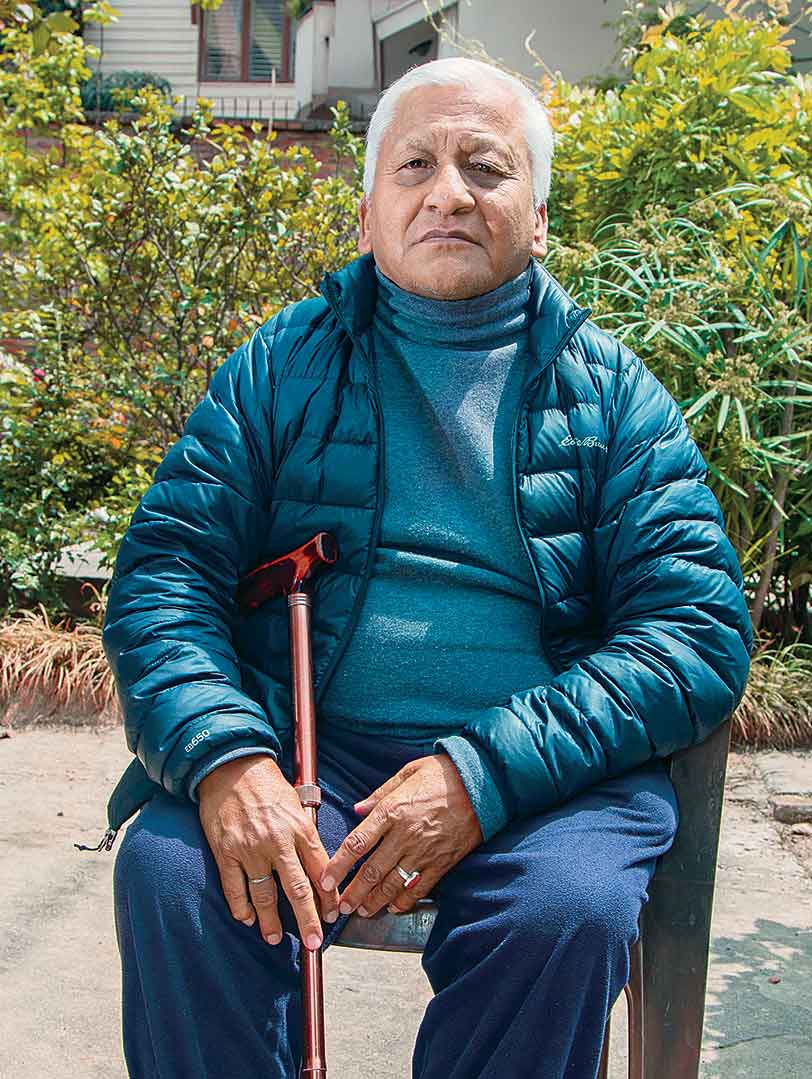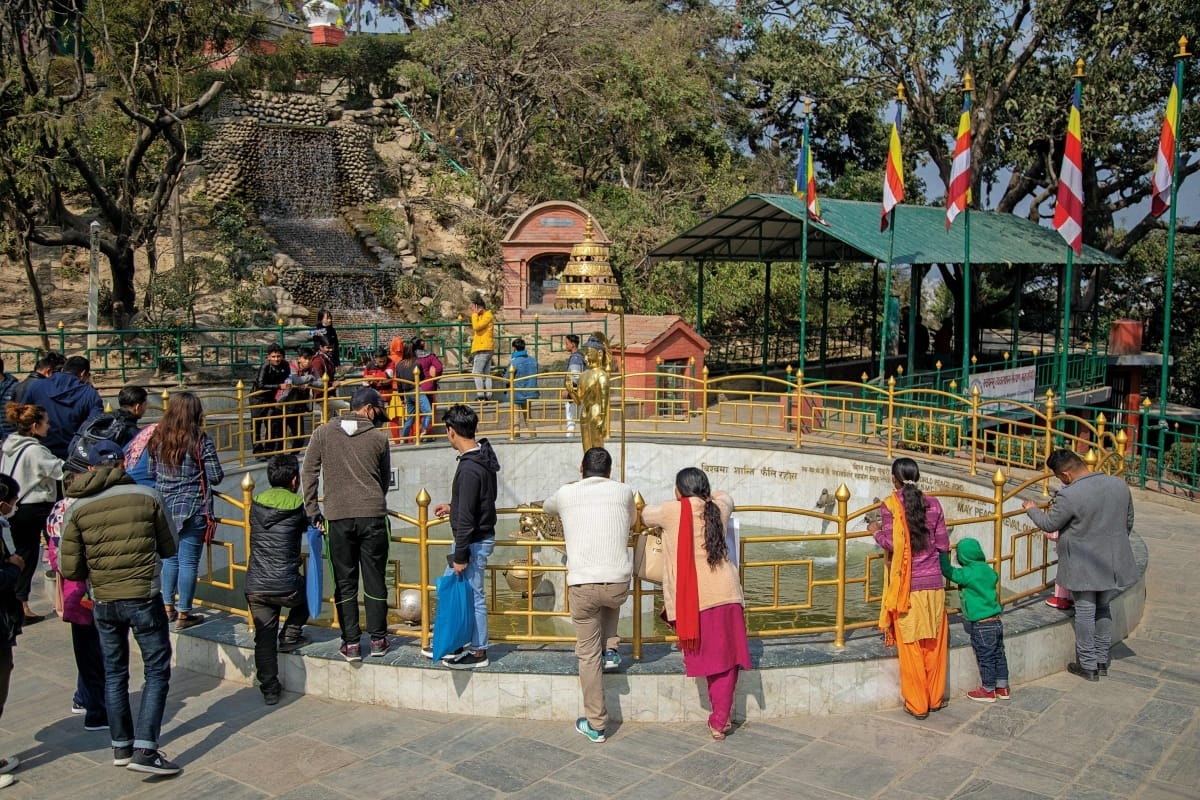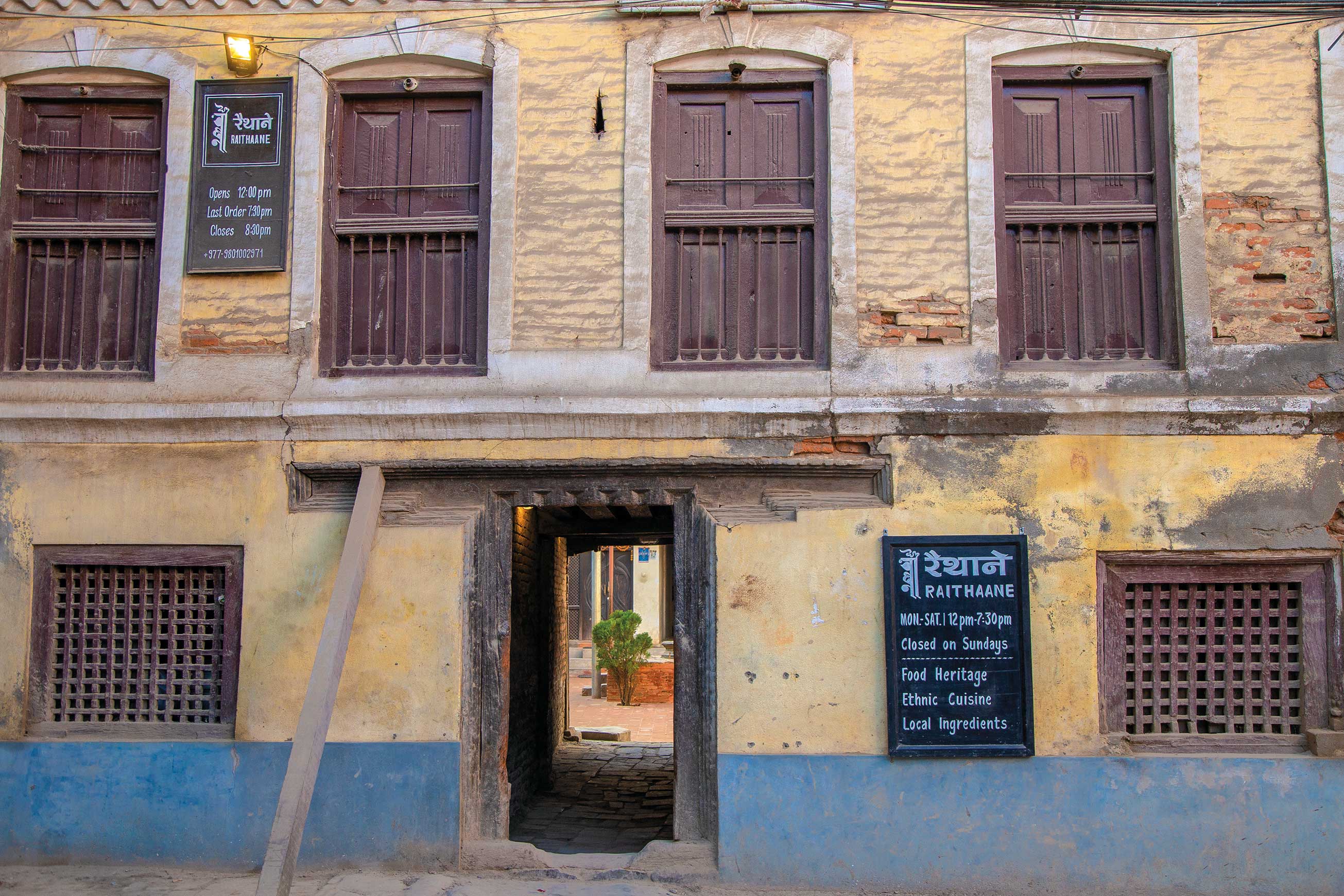“I came here about four years ago along with my wife. She passed away four months ago,” says Mr. Raj Bahadur Manandhar, a sprightly 73-year-old who lives in Health Home Care Nepal in Sanepa, Lalitpur. “Initially, we had planned to stay here for only three months, but we stayed on for four years, and now that my wife has passed away, I too have decided to live here till my time comes.”
What could be the reason for his decision? “I find it to be a very convenient place to live in,” he replies. He is as healthy and hearty a man for his age as you’ll find anywhere, his knees being the only source of his discomfort, and his mental acumen has to be admired. He can tell you the exact dates of many events in his life. His 44-year-old daughter has settled down in Sydney. “She is a civil engineer,” he says, adding, “My son, who is thirty three, is in the computer industry in Minnesota. I have three grandchildren from the two.” He himself was a teacher of English in Kanya Mandir High School, Kathmandu, for almost forty years, and he reveals that he had encouraged his children to go abroad.
Currently, the home has fourteen inhabitants, whose children pay quite a tidy sum a month for their good upkeep, which includes lodging, boarding, medical care, etc. “We have specialized doctors and trained nurses to provide 24-hour care,” says Ms. Rojee Pradhan, the administration manager. Homes for the aged number about seventeen in the valley at present, and their number is on the rise. Undoubtedly, a prime reason is the exodus of young people abroad, and thus the problem of care for their elders. There are other reasons, too, such as the break-up of joint families, as well as more women working nowadays. So, one has to expect that there will be more old age homes coming up in the future.
Nevertheless, one cannot say that it is an easy matter for children to admit their parents in such homes, keeping in mind the deeply-rooted values of our culture. This is vindicated by what Ms. Pradhan says, “One lady here was telling me about how some of her relatives were saying that it was unfortunate that she had been dumped in an old age home by her children, and how ashamed they felt visiting her here. But, she also said, ‘They should know that my children are paying a lot of money every month for my good care!’”
Most definitely, she has a strong point, but it is also true that there will be those who will have some pretty harsh views on the matter. It is certainly practical to ensure better care of the aged by admitting them in a home where they receive round-the-clock care by trained personnel, something that cannot be done at home, even if there are people to look after them. But, it is also a pretty emotional issue for both children and their parents. Perhaps not everybody can adjust as well as the lively Mr. Manandhar, and perhaps some may feel miserable at being uprooted from their homes, the familiar surroundings they have lived in throughout their lives, and the children on their part could also have ambivalent feelings. At the same time, one has to also consider the question of compulsion. In many cases, there really cannot be a better decision than keeping the parent(s) in a well-managed home for the aged. As Ms. Pradhan says, “Most of them are above seventy and afflicted with various ailments that make them disabled. No matter how noble the intention, such individuals cannot be assured the care they require at home.”
And so, there is certainly a need for such homes for the aged. One of them is Orchid Care Home in Basundhara, Kathmandu. Its founder and managing director, Ms. Yamuna Katuwal, however, does not like her establishment being referred to as such. “We are a bridge of comfort between the elderly and their children; I prefer to call ourselves a partner in their care.” Her ‘bridge of comfort’ is on a larger scale than many others, with fifty-two fulltime staff and specialized doctors on call. “I can claim that you won’t find a better establishment than ours working for the care of the elderly in Kathmandu,” she declares. “In fact, we have reached such a stage of competence that we are confident of delivering on any promise we make.”
The going was definitely not easy for her in the beginning. “We opened some ten years ago, but really began operating fully after two years of struggle and challenges.” Apparently, one of the major hurdles was the lack of trained caregivers, and she says that for the first two years she had to almost singlehandedly run the home. “It was so difficult to train people,” she recalls. Her master’s degree in clinic management surely must have helped her face the challenges with fortitude. Now, so far has she come in terms of competence and confidence that she is planning to open a college to train caregivers for the elderly. “We will also be starting home services from this New Year (April 14),” she informs with pride.
A visit to Orchid Care Home makes it evident that it is very well-managed indeed. It provides various kinds of services like physiotherapy, speech therapy, stroke care, and so on. Currently, there are about forty individuals in day care, and about thirty-one patients living in the home. “Till date, we have provided comfort and care to almost seventeen hundred elderly men and women,” she says with great satisfaction. One can assume that many of the home’s inhabitants have children living abroad, but according to Ms. Katuwal, there are also many whose children live in the country. And, do they not feel somewhat awkward to have their parent(s) in her home, considering the prevalent societal values? “No,” she replies emphatically. “In fact, I’ve seen them swell with pride and satisfaction at being able to provide such comfort and care for their parent(s),” Doubtless, this is something not all can do, keeping in mind the substantial cost involved, but she is also quite firm in her opinion that the cost is well justified because of the superior care and facilities provided.
It says a great deal about her home that many of those in their care have come through referrals and recommendations from those who have already had their parent(s) admitted there. It also says a great deal about the changing societal values and the growing acceptance to needs of the fast changing times we live in today.










